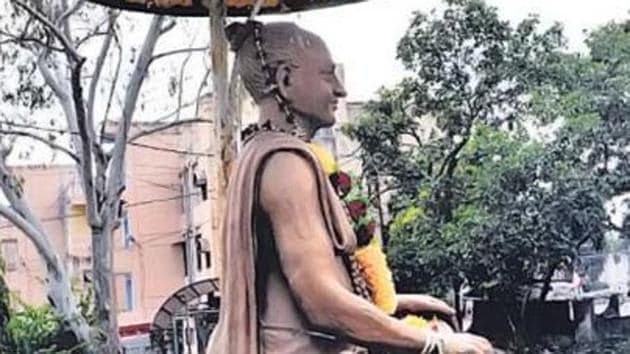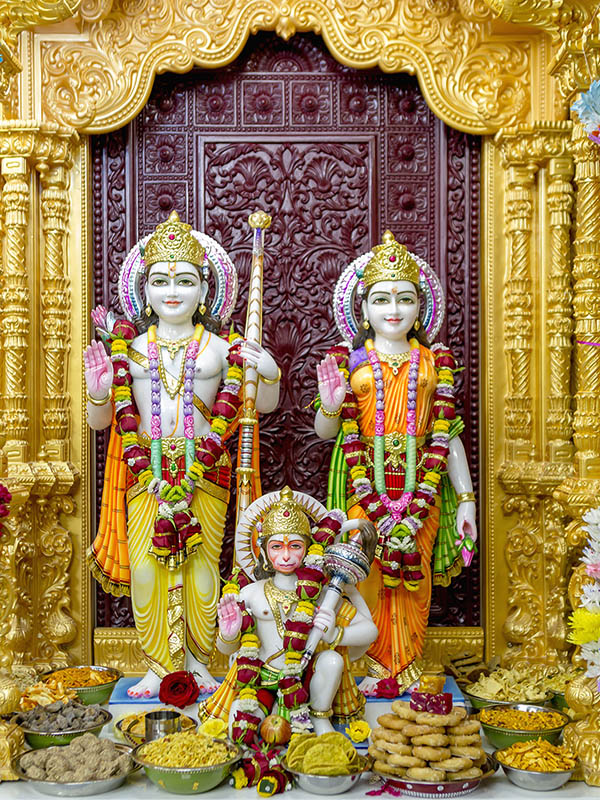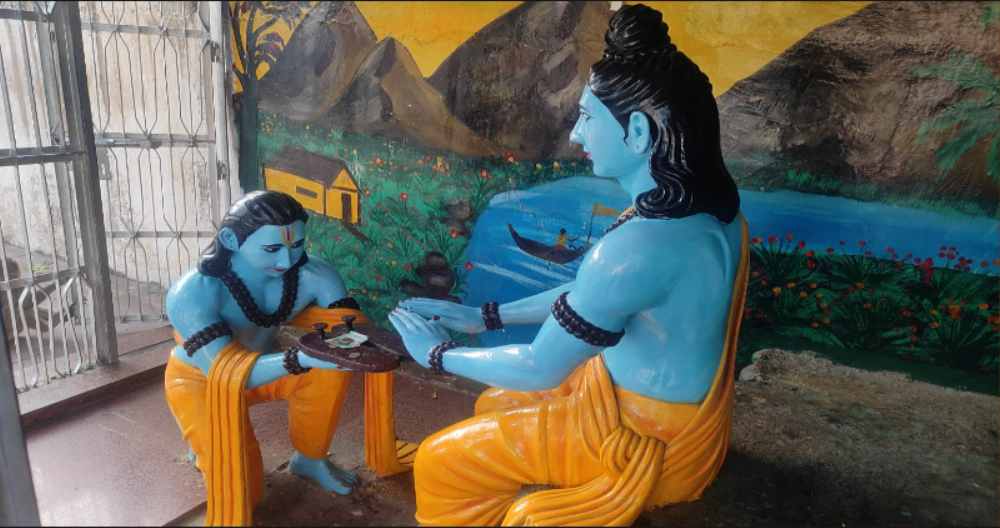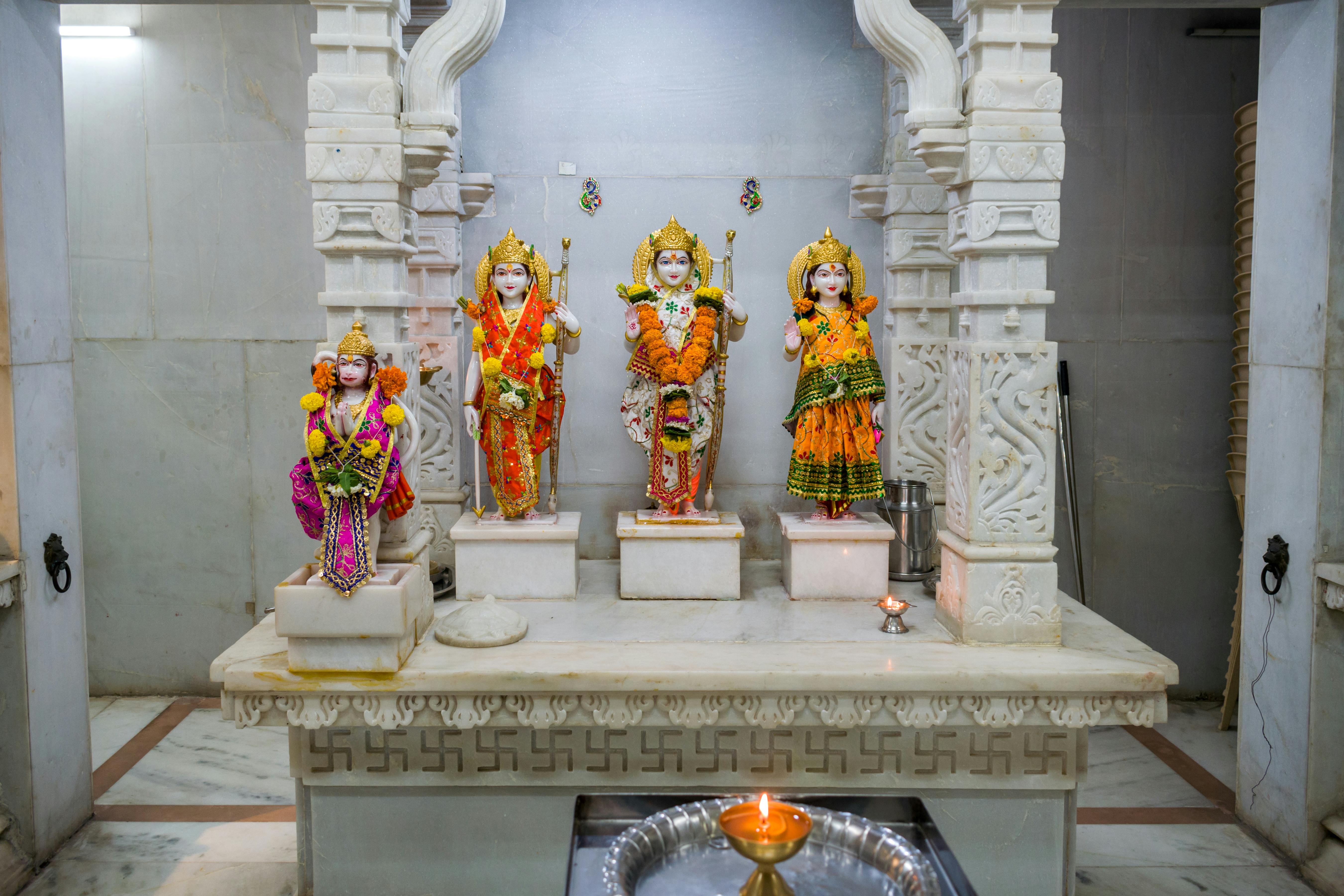The Essence of Supreme Love
The verse reads:
गुणरहितं कामनारहितं प्रतिक्षणवर्धमानमविच्छिन्नं सूक्ष्मतरमनुभवरूपम्॥ ५४॥
Gunarahitaṃ kāmanārahitaṃ pratikṣaṇavardhamānam avichinnaṃ sūkṣmataram anubhavarūpam
“This love is beyond all qualities, free from desires, continuously increasing at every moment, uninterrupted, subtler than the subtlest, and of the nature of direct experience.”
This single verse contains the entire philosophy of pure divine love. This is the distilled essence of parama-prema, the supreme divine love that saints speak of.
The Six Characteristics of Divine Love
1.गुणरहितं (Gunarahitam) “Without attributes or qualities”
When we love someone because of their beauty, intelligence, wealth, or any other quality, that love carries an inherent vulnerability. What happens when those qualities fade or disappear? The love built upon them crumbles like a house built on sand. Such conditional love asks: “What can you give me? What do you possess that attracts me?”
True divine love, however, is gunatita – transcendent of the three gunas (sattva, rajas, and tamas) that govern material existence. It exists in a realm beyond qualities, beyond reasons, beyond justifications.
Scriptural Support
त्रिभिर्गुणमयैर्भावैरेभि: सर्वमिदं जगत् |
मोहितं नाभिजानाति मामेभ्य: परमव्ययम् ||
tribhir guṇa-mayair bhāvair ebhiḥ sarvam idaṁ jagat
mohitaṁ nābhijānāti māmebhyaḥ param avyayam
“When an intelligent person understands that in all activities there is no other doer than the three modes of nature, and who sees Me as being beyond these three modes, he attains My divine nature.” Bhagavad Gita (14.19)
2.कामनारहितं(Kamanarahitam) “Free from desire”
“In true love, there is no personal desire, except the wish that the beloved be happy.”
This is the core of Nishkama Bhakti, desireless devotion. The devotee wants nothing, not wealth, not heaven, not even liberation. The only “desire” is the continuous flow of love itself.
Shri Ramcharitmanas Teaching
जाहि न चाहिअ कबहुँ कछु तुम्ह सन सहज सनेहु।
बसहु निरंतर तासु मन सो राउर निज गेहु॥
“He who desires nothing and has unconditional love for you, you reside constantly in his heart; that is your true home.”
नाथ एक बर मागउँ राम कृपा करि देहु।
जन्म जन्म प्रभु पद कमल कबहुँ घटै जनि नेहु॥
“O Lord! O Shri Ram! I ask of you only one boon; please grant it. May my love for your lotus feet never diminish, even in countless lifetimes.”
Here lies a beautiful paradox: by abandoning all desires, the devotee gains everything. By seeking nothing, they receive the Supreme. By wanting only the beloved’s love, they discover their own ultimate fulfillment.
3.प्रतिक्षणवर्धमानम् (Pratikshana Vardhamanam) “Ever-increasing at every moment”
This love is increasing at every moment and is never interrupted. Unlike worldly love that may peak and then plateau or decline, divine love knows only one direction: upward and onward, growing continuously without limit.
The true devotee always feels: “My love is still insufficient. I could love more. I should love more.” This feeling isn’t born of guilt or inadequacy but from the infinite nature of divine love itself. No matter how much love the devotee experiences, they sense infinite depths yet to be explored.
At no stage does the devotee feel their love has reached completion. Every effort naturally becomes an attempt to increase love. This is not an effort born of duty but the spontaneous impulse of a heart that has tasted divine sweetness and wants more.
Saint Chaitanya Mahaprabhu called this “ānandāmbudhi-vardhanam“
“It expands the ocean of transcendent bliss, enabling us to enjoy the nectar that we are always yearning for fully.”
4.अविच्छिन्नं (Avichinnam) “Unbroken and continuous”
Divine love is unbroken, continuous, flowing without interruption. Just as the Ganges flows ceaselessly toward the ocean, divine love flows without pause from the devotee’s heart toward the Supreme.
Worldly love fades with distance or separation. But divine love becomes deeper in absence, because it is not based on proximity but the union of hearts.
Even when God appears hidden, the longing for Him (viraha) itself becomes blissful.
Shri Ramcharitmanas Teaching
तव पद पंकज प्रीति निरंतर। सब साधन कर यह फल सुंदर॥
“The best fruit of studying and listening to numerous Tantras, Vedas, and Puranas is the same, and this is also the beautiful fruit of all spiritual practices: that there may be uninterrupted love for your lotus feet.”
“Consistently united with Me in devotion. Devotees are yogis, as their consciousness is immersed in God. This immersion is not sporadic or temporary, but rather steady and unwavering due to their firm establishment in their relationship with God.” (Bhagavad Gita 12.14)
Maintaining uninterrupted love might seem impossible to our distracted minds. However, the secret lies not in forced concentration but in natural absorption. When someone is truly in love, they don’t have to force themselves to think of their beloved – the thoughts come naturally, continuously, effortlessly.
Similarly, when divine love matures, remembrance of God becomes as natural and continuous as breathing. This is not achieved through willpower alone but through grace responding to sincere practice.
5. सूक्ष्मतरं (Sukshmataram) “Subtler than the subtlest”
Pure love manifests as the most subtle consciousness. It resides in the secret cave of the heart (hṛdaya gupta guhā), hidden from casual observation, subtler than the subtlest atom. It can be felt but not explained.
Raskhan’s Poetic Expression
अति सूच्छम, कोमल अतिहि, अति पतरो, अति दूर। प्रेम कठिन सबते सदा, नित इकरस भरपूर॥
“Extremely subtle, extremely tender, extremely thin, extremely distant; love is hardest of all, yet always filled with one continuous essence.”
The Saint poet uses multiple words – sūkṣma (subtle), komala (tender), pataro (thin), dūra (distant) – to convey that this love exists in a dimension beyond ordinary comprehension. It’s “hardest of all” (kaṭhina sabate) – meaning most difficult to attain or understand through ordinary means.
Divine love is delicate, subtle, and beyond description, only known through direct experience.
6.अनुभवरूपम् (Anubhavarūpam) Of the Nature of Direct Experience
Divine love is of the nature of direct, personal experience. It cannot be fully conveyed through words, concepts, or second-hand descriptions. It must be lived, felt, and experienced firsthand.
“Bhaktiḥ pareśānubhavo viraktir anyatra caiṣa trika eka-kālaḥ.”
(Bhagavata Purana)
“True devotion reveals direct experience of the Lord and disinterest in worldly pleasures, all at once.”
Yet still not experience divine love. Knowledge about love is not the same as the living experience of love.
The spiritual path ultimately requires this leap from conceptual understanding to direct realization. As the Upanishads say: “Neti neti” – not this, not that. Divine love cannot be captured in any concept, yet it can be lived and experienced.
Understanding Is Not Enough
After studying these six characteristics of divine love, we must ask ourselves: What now? Intellectual understanding, while valuable, is only the beginning. The real journey involves embodying these qualities in our own spiritual practice.
For Gunarahita (Beyond Qualities):
- Do I love God because of what He gives me, or for His own sake?
- Would my devotion remain if I lost all material blessings?
- Am I attached to particular forms or manifestations of the Divine, or do I love the formless essence?
For Kāmanārahita (Free from Desires):
- What do I truly want from my spiritual practice?
- Am I seeking liberation, or am I seeking the Liberator?
- Can I pray, “Let Your will be done” and truly mean it, even if it contradicts my personal desires?
For Pratikṣaṇa Vardhamāna (Continuously Increasing):
- Is my devotion deeper today than last year?
- Do I feel satisfied with my current level of practice, or do I sense infinite depths yet to explore?
- What concrete steps am I taking to deepen my love for God?
For Avichinna (Uninterrupted):
- How often during the day do I remember God?
- Do I see the Divine in my daily activities, or only in formal worship?
- What practices help me maintain continuous awareness?
For Sūkṣmatara (Subtler than Subtlest):
- Am I cultivating inner sensitivity to subtle spiritual movements?
- Do I judge others’ devotion by external appearances?
- Am I creating space for deep inner silence where subtle love can be felt?
For Anubhavarūpa (Direct Experience):
- Am I willing to be vulnerable and open to divine grace?
- Is my spirituality primarily intellectual, or am I having direct experiences?
- What practices help me move from concepts to realization?
It calls to something deep within every human heart, that place where we know we’re made for something more than worldly pursuits, where we sense that love is the ultimate answer to







